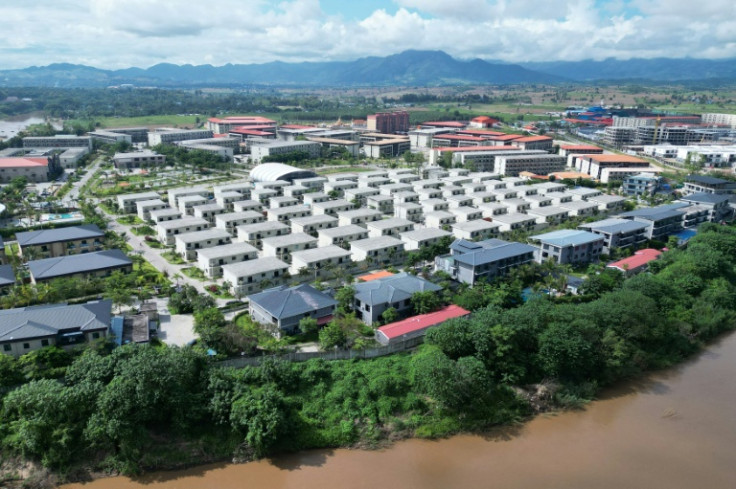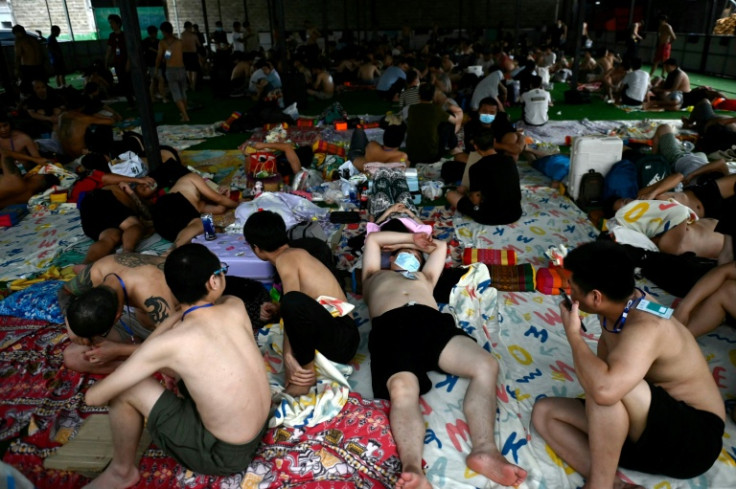Exposed: Myanmar's Growing Scam Hubs Powered by Elon Musk's Starlink Despite Global Crackdowns
Human trafficking and cyber fraud surge as militias profit from Myanmar's lawless border economy

Authorities claimed to have dismantled them, yet the vast scam compounds operating along Myanmar's border with Thailand are not only still active but expanding.
An investigation by Agence France-Presse (AFP) found that the so-called fraud factories, accused of swindling Chinese, American and other victims out of billions, have quietly resumed operations and are now growing at an alarming rate.
Starlink Fuels Cybercrime Expansion
Satellite images and drone footage show rapid construction inside heavily fortified compounds near Myawaddy, a notorious centre for organised crime in the Golden Triangle.
Many facilities appear to be fitted with dozens of Starlink satellite dishes, suggesting that Elon Musk's network is being used to power large-scale scam operations in Myanmar, where Starlink remains unlicensed.
Experts say these cybercrime hubs, notorious for romance scams and "pig-butchering" investment cons, are controlled by Chinese-led syndicates working closely with local militias who profit from human trafficking, narcotics and illegal gambling.
A Crackdown That Failed
In February, under pressure from China, Thailand and Myanmar, local militias pledged to dismantle the cyber-fraud network and released about 7,000 enslaved workers. Many of those freed showed reporters scars and bruises from beatings inflicted by overseers when they failed to meet daily scam quotas.
But the relief was short-lived. A senior Thai police official estimated that up to 100,000 people remain trapped inside the compounds, which resemble mini-cities enclosed by barbed wire and armed guards. Satellite photos taken only weeks after the raids revealed construction restarting, with new dormitories and offices appearing inside the complexes.

Starlink's Shadow Role
At KK Park, one of the region's largest scam sites, nearly 80 Starlink dishes now glint from a single rooftop. Data from the regional internet registry APNIC shows Starlink rising from the 56th-most used provider in Myanmar in April to the top position by early July.
California prosecutors warned Starlink in mid-2024 that its system was being exploited by international fraud networks, but the company did not respond. The US Congress Joint Economic Committee has since opened an inquiry into Starlink's possible role in enabling these scam operations. SpaceX, which owns Starlink, also declined to comment.
Former US cybercrime prosecutor Erin West described it as 'abhorrent that an American company is enabling this to happen', noting that Americans lost an estimated $10 billion (£8.2 billion) to Southeast Asian scam networks last year — a 66 per cent rise in just 12 months.
A Booming Shadow Economy
Fresh drone imagery shows a construction frenzy across at least 27 compounds in the Myawaddy corridor. Entire new wings of KK Park have emerged in recent months, while ferry crossings now deliver supplies from the Thai side.
One such crossing serves Shwe Kokko, a town the US Treasury calls a 'notorious hub for virtual currency scams' protected by the Karen National Army, a militia allied with Myanmar's junta. Washington has sanctioned nine people and companies linked to Shwe Kokko and Chinese crime boss She Zhijiang, whose Yatai New City continues to expand despite international condemnation.
The Golden Triangle, where Myanmar, Thailand, China and Laos meet, has long been a centre of drug trafficking and smuggling. Civil conflict and corruption have now created a power vacuum that allows organised crime groups to expand their digital operations unchecked.
According to the UN Office on Drugs and Crime, scam centres across Southeast Asia defrauded victims of $37 billion (£30.3 billion) in 2023. Many workers were lured by fake job offers, only to be trafficked, beaten or forced to pay ransoms to escape.
Inside the Scam Factories
Among those rescued was Sun, a 25-year-old Chinese man trafficked through Thailand and sold to a scam compound for about $20,000 (£16,400). He told AFP he was tortured for working too slowly. 'Almost everyone inside had been beaten at some point,' he said.
Analysts describe the compounds, run by militias loyal to Myanmar's military regime, as operating in a 'highly permissive environment'.
The Australian Strategic Policy Institute concluded that these syndicates enjoy near-total impunity as long as profits keep flowing.
China has executed or sentenced to death several gang leaders, but experts warn that the criminal networks simply relocate and rebuild. As Erin West warned, 'A generation's worth of wealth is being stolen from us. I don't know how we shut this down. It is way too big now, like an enemy state.'
© Copyright IBTimes 2025. All rights reserved.






















